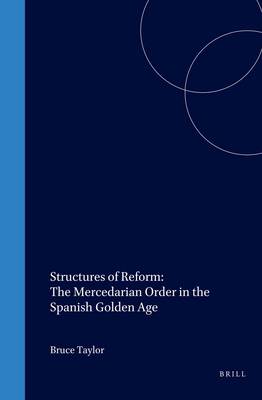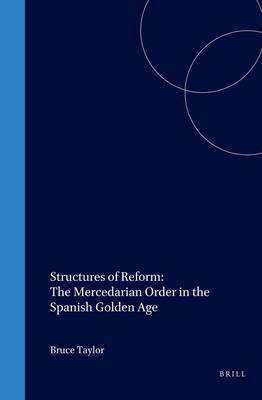
- Afhalen na 1 uur in een winkel met voorraad
- Gratis thuislevering in België vanaf € 30
- Ruim aanbod met 7 miljoen producten
- Afhalen na 1 uur in een winkel met voorraad
- Gratis thuislevering in België vanaf € 30
- Ruim aanbod met 7 miljoen producten
Zoeken
Structures of Reform: The Mercedarian Order in the Spanish Golden Age
Bruce Taylor
€ 236,95
+ 473 punten
Omschrijving
During the sixteenth and the seventeenth centuries the Mercedarian Order of friars, founded in the 1220s, underwent a period of reform from which it emerged utterly transformed.
This study sets out to examine not only the context of that reform - the policies of the crown and the papacy, the condition of Catalonia and Spain at large, the circumstances prevailing within the Order and the dialogue with its past - but also to grasp the essence of monastic reform itself against this diverse background.
The imposition of other than purely religious criteria onto the reform agenda alerts us to the deeper implications of monastic change in Early Modern Europe. For the Mercedarians the result by 1650 was a wholly new Order; the evolution of this process, by turns calculated and unexpected, is here explored.
This study sets out to examine not only the context of that reform - the policies of the crown and the papacy, the condition of Catalonia and Spain at large, the circumstances prevailing within the Order and the dialogue with its past - but also to grasp the essence of monastic reform itself against this diverse background.
The imposition of other than purely religious criteria onto the reform agenda alerts us to the deeper implications of monastic change in Early Modern Europe. For the Mercedarians the result by 1650 was a wholly new Order; the evolution of this process, by turns calculated and unexpected, is here explored.
Specificaties
Betrokkenen
- Auteur(s):
- Uitgeverij:
Inhoud
- Aantal bladzijden:
- 506
- Taal:
- Engels
- Reeks:
- Reeksnummer:
- nr. 12
Eigenschappen
- Productcode (EAN):
- 9789004118577
- Verschijningsdatum:
- 20/06/2000
- Uitvoering:
- Hardcover
- Formaat:
- Genaaid
- Afmetingen:
- 163 mm x 240 mm
- Gewicht:
- 1075 g

Alleen bij Standaard Boekhandel
+ 473 punten op je klantenkaart van Standaard Boekhandel
Beoordelingen
We publiceren alleen reviews die voldoen aan de voorwaarden voor reviews. Bekijk onze voorwaarden voor reviews.








